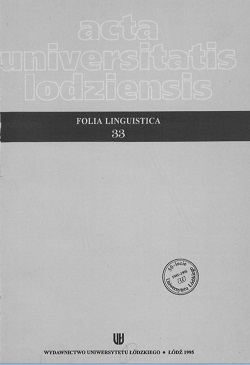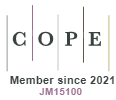Temporal Prepositional Constructions in the Polish Language
DOI:
https://doi.org/10.18778/0208-6077.33.05Abstract
This article deals with the already obsolete prepositional ways of denoting lime in the history of the Polish language.
Adverbials of time in Polish were expressed by the following prepositional structures: za + Dopełniacz (za + Genitive – za jego dni coś się stało) something happened in his days; z + Dopełniacz (z + Genitive – uczymy się tego z dzieciństwa) let us learn it from the childhood; o + Miejscownik (о + Locative – przyjechał o środzie, przybył o poniedziałku) he arrived on Wednesday, he came on Monday; za + Narzędnik (za + Ablative – za przybyciem moim do Warszawy odbiorę paczkę) I will collect the parcel on my arrival to Warsaw; na + Miejscownik (na + Locative – wstanę na świtaniu) I will get up at daybreak; na + Biernik (na + Accusative – młynarz та to oglądać na każdy dzień) the miller is to see it every day; przy + Miejscownik (przy + Locative – przy pogodnych dniach wyjeżdżam na polowanie) on sunny days I go hunting; po + Biernik (po + Accusative – będzie panować po wszystkie dni) he will reign till the end of time; ku + Celownik (ku + Dativ – drzewa ku jesieni poschną) the trees will wither towards springtime.
These prepositional adverbials of time have been superseded first of all by other prepositional phrases, less frequently by Genitive case without a preposition.
Downloads
Downloads
Published
How to Cite
Issue
Section
License

This work is licensed under a Creative Commons Attribution-NonCommercial-NoDerivatives 4.0 International License.










